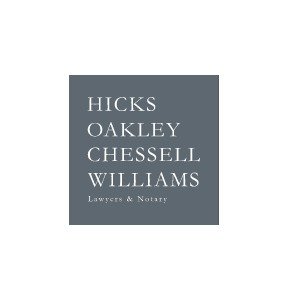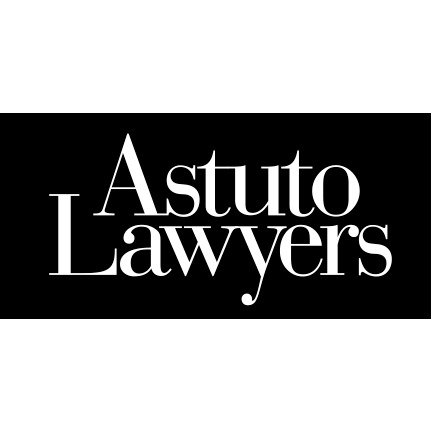Best Commercial Real Estate Lawyers in Melbourne
Share your needs with us, get contacted by law firms.
Free. Takes 2 min.
Free Guide to Hiring a Real Estate Lawyer
List of the best lawyers in Melbourne, Australia
About Commercial Real Estate Law in Melbourne, Australia
Commercial Real Estate Law in Melbourne encompasses a wide range of legal areas related to the sale, purchase, lease, development, and use of land and properties designated for business purposes. Melbourne, being one of Australia's major economic hubs, sees robust activity in its commercial real estate sector, involving businesses, investors, developers, and legal professionals. The legal landscape is influenced by state and federal laws, zoning and planning regulations, environmental considerations, and contract law, all of which play vital roles in ensuring that transactions and developments proceed smoothly and lawfully.
Why You May Need a Lawyer
Engaging a lawyer in the field of commercial real estate in Melbourne can be crucial for various reasons:
- Negotiating and drafting lease agreements to protect tenant or landlord rights.
- Guiding through the acquisition or sale of commercial properties to ensure compliance with local laws and standards.
- Navigating complex planning and zoning laws for property development or change of use.
- Resolving disputes between landlords and tenants or between rival businesses concerning property use.
- Ensuring compliance with environmental regulations and addressing any liabilities.
- Assisting with financing arrangements and navigating mortgage and securities law.
Local Laws Overview
Commercial real estate in Melbourne operates under a framework of state and local regulations:
- The Planning and Environment Act 1987 mandates that property development complies with Melbourne's planning schemes.
- Local councils impose zoning laws that define permissible uses for different areas, impacting property development and business activities.
- The Retail Leases Act 2003 provides clear guidelines around leases, ensuring fair dealings between landlords and tenants in retail premises.
- There are stringent environmental legislations that may affect property use, especially if the land is contaminated or subject to conservation requirements.
- Building codes and safety standards are regulated at both state and local levels, impacting new builds and renovations alike.
Frequently Asked Questions
What is the process for leasing a commercial property?
The process typically involves negotiating terms, drafting and signing a lease agreement, and ensuring compliance with zoning laws and building codes. Both parties should engage legal advice to protect their interests.
What factors should be considered in a commercial property purchase?
Key considerations include location, zoning laws, financing options, environmental assessments, property condition, and potential for future development or resale value.
How do zoning laws affect commercial real estate?
Zoning laws dictate how land can be used in different areas, impacting business operations and property development. It is crucial to check local zoning ordinances before committing to a property.
What rights do tenants have under a commercial lease?
Tenants have rights concerning the use of the property, renewal options, maintenance, and repair obligations, as well as rights to due process should a dispute arise. The specifics will be outlined in the lease agreement.
What are typical clauses included in a commercial lease?
Common clauses include rent amount and escalation, duration of the lease, maintenance responsibilities, permitted use of the property, and termination conditions.
What should be considered when drafting a commercial lease?
Considerations include clearly defined terms, responsibilities of each party, rental rates and increases, duration, and dispute resolution mechanisms, all tailored to the specific business relationship.
How can I resolve a dispute with a landlord or tenant?
Resolution mechanisms can include negotiation, mediation, arbitration, or litigation. It’s advisable to seek legal advice early to assess your options properly.
What is the role of a lawyer in a commercial property transaction?
A lawyer ensures that contracts and agreements comply with the law, advises on tax implications, performs due diligence, and helps mitigate risks associated with the transaction.
How does environmental regulation affect commercial real estate?
Properties may be subject to environmental assessments prior to sale or development, especially if there is a history of contamination, impacting usability and liability.
What insurance should I have for a commercial property?
Typical insurance includes property, liability, and sometimes business interruption coverage. Specific requirements can vary, so legal and insurance advice is recommended.
Additional Resources
Several resources can be invaluable for those navigating commercial real estate in Melbourne:
- The Victorian Government's Department of Environment, Land, Water, and Planning for information on policies and planning schemes.
- The Law Institute of Victoria offers resources and a directory of practicing lawyers specializing in real estate law.
- Local councils provide specific information on zoning and land use planning applicable to their jurisdictions.
- Australia's Consumer Affairs Victoria can help with guidelines and rights concerning commercial leases.
Next Steps
If you require legal assistance in commercial real estate, consider the following steps:
- Define your specific needs: Know whether you need assistance with leasing, purchase, dispute resolution, or development.
- Research and engage a qualified commercial real estate lawyer through recommendations or directories.
- Prepare documents and questions in advance to make initial consultations efficient and productive.
- Discuss your case, understand your legal options, and develop a strategy with your lawyer.
- Follow up on legal advice and keep communications open with all parties involved to move forward effectively and lawfully.
Lawzana helps you find the best lawyers and law firms in Melbourne through a curated and pre-screened list of qualified legal professionals. Our platform offers rankings and detailed profiles of attorneys and law firms, allowing you to compare based on practice areas, including Commercial Real Estate, experience, and client feedback.
Each profile includes a description of the firm's areas of practice, client reviews, team members and partners, year of establishment, spoken languages, office locations, contact information, social media presence, and any published articles or resources. Most firms on our platform speak English and are experienced in both local and international legal matters.
Get a quote from top-rated law firms in Melbourne, Australia — quickly, securely, and without unnecessary hassle.
Disclaimer:
The information provided on this page is for general informational purposes only and does not constitute legal advice. While we strive to ensure the accuracy and relevance of the content, legal information may change over time, and interpretations of the law can vary. You should always consult with a qualified legal professional for advice specific to your situation.
We disclaim all liability for actions taken or not taken based on the content of this page. If you believe any information is incorrect or outdated, please contact us, and we will review and update it where appropriate.

















